Manchester sex abuse: Exploited children 'were not protected'
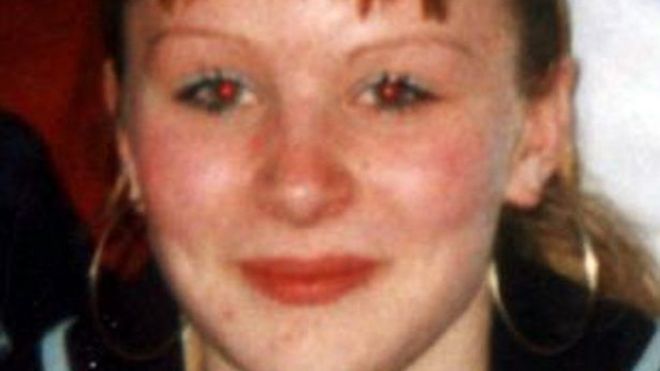 GMP
GMP
Police and social workers investigating child sex exploitation in Manchester knew children were suffering "the most profound abuse... but did not protect them", a report has found.
After a child's death in 2003, police identified at least 97 suspects, but "very few" faced justice, the independent review found.
The police operation was "prematurely closed down" after officers decided to "remove resources", the report said.
Police said "authorities fell short".
Greater Manchester Police's (GMP) Operation Augusta was set up to tackle "the sexual exploitation throughout a wide area of a significant number of children in the care system by predominantly Asian men", the report said.
Greater Manchester Mayor Andy Burnham, who commissioned the report as a result of the 2017 BBC documentary The Betrayed Girls, focussed on the death in 2003 of 15-year-old Victoria Agoglia and GMP's subsequent investigation.
He said Victoria's death had "exposed a network of paedophiles brazenly abusing young people in care... [who] should have been brought to justice but, appallingly, most escaped and some were left to reoffend".
He added there was now "a zero tolerance approach to child sexual exploitation of any kind".
Victoria's grandmother Joan Agoglia said the publication of the report made her feel "wonderful as I've been fighting for this all my life, it seems".
GMP Chief Constable Ian Hopkins apologised for the police failures which allowed the abuse of children in care to continue.
"On behalf of Greater Manchester Police, I want to apologise to all those vulnerable children who were let down in 2004 by police not thoroughly investigating the offences that had been committed against them.
"I want to say that I am personally disgusted that these children were not cared for and by the awful abuse that they suffered."
GMP is reviewing all the cases covered in the report and has made a voluntary referral to the Independent Office for Police Conduct.
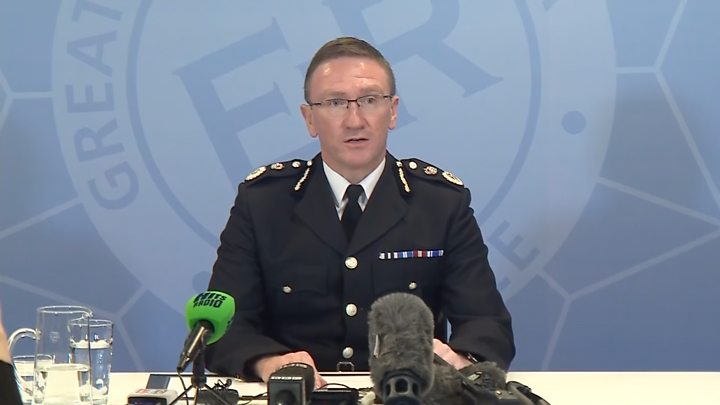
Manchester City Council's (MCC) chief executive Joanne Roney said some social work at the time "fell far below the high standards we now expect", adding: "We want to reassure people that, more than a decade and a half of learning later, we are in a much better place."
She said all the social workers and managers involved in the cases were no longer working for the council and four had been referred to the Health and Care Professions Council for possible disciplinary action.
Who was Victoria Agoglia?
Victoria Agoglia was in the care of Manchester City Council following the death of her mother.
The report found her carers were aware of her being subjected to "multiple threats, sexual assaults and serious sexual exploitation" and had been told that she was being "injected with heroin by an older Asian man [but] no action was taken by the police or social care".
She subsequently died "having been administered an overdose", but the men who exploited her "have never been brought to justice", the report said, adding that its authors had been denied access to files relating to Victoria by the Manchester coroner.
It said the coroner at her inquest "recognised the multiple concerns", but described Victoria as "having a propensity 'to provide sexual favours'", which "significantly underplays the coercion and control" she was subject to.
It added that having considered "both the harrowing experience of Victoria" and that of her contemporaries, its authors "cannot understand" how the coroner at the time stated that it was "absolutely essential" that the public had confidence in "the quality of care and support afforded to children cared for within the child protection system".
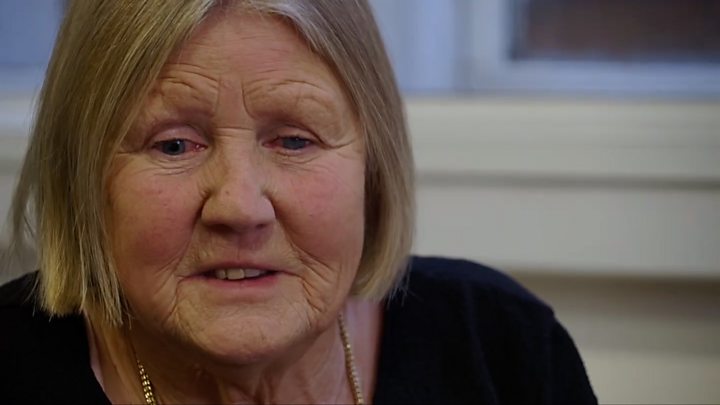
At the time she died, Manchester Social Services said it had done everything possible to keep Victoria safe.
In 2004, a 50-year-old man was cleared of her manslaughter, but admitted two offences of injecting her with heroin and was jailed.
What was Operation Augusta?
After Victoria's death, GMP launched Operation Augusta, which subsequently identified at least 57 children "as potential victims" and up to 97 "persons of interest" involved in the crimes against them.
The report found the operation was ultimately "prematurely closed down... before it could complete its work", a decision that was driven by a desire to "remove the resources", rather than by having "a sound understanding that all lines of inquiry had been successfully completed or exhausted".
"The authorities knew that many [children] were being subjected to the most profound abuse and exploitation but did not protect them from the perpetrators," it said.
What did the report find?
The report's authors, childcare expert Malcolm Newsam and former Det Supt Gary Ridgeway, considered a "sample" of cases from Operation Augusta and in each, found that they "cannot offer any assurance" that alleged offences were "appropriately addressed by either GMP or MCC".
They also found eight men identified in the investigation had gone on to commit serious sexual offences, including rapes of girls aged both under and over 16, after the operation was ended and that one suspect vehicle uncovered in the initial investigation was linked to a GMP officer, who was later dismissed from the force.
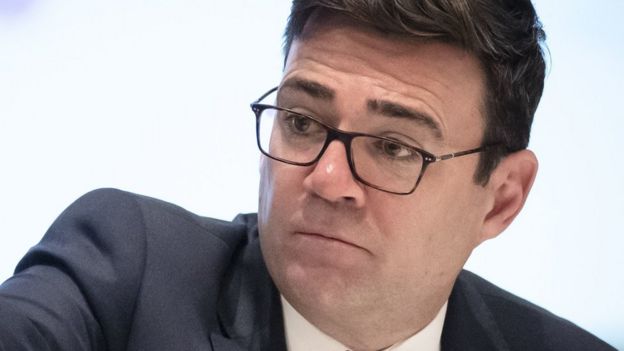 PA MEDIA
PA MEDIA
It said Victoria's family and the other exploited children must have their allegations "fully investigated" and the mayor, GMP and MCC must look at "how the people who appeared to present a risk to children in 2004 can now be brought to justice".
It concluded that "any future approach" needed to "address the exploitation of a significant number of children as recognised by Operation Augusta".
"Anything less would risk repeating the mistakes of the past and not give the survivors the justice they deserve," it added.
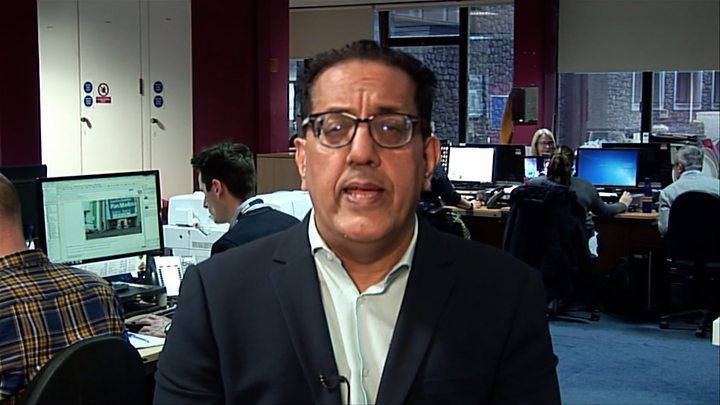
What has been the response?
Mrs Agoglia said she was lied to by the police and social workers at the time of her granddaughter's death, adding: "Where were they when Victoria was being abused?"
"I told them and I told them, Vicky came down time and time again to me... and she told me herself what these men had done to her."
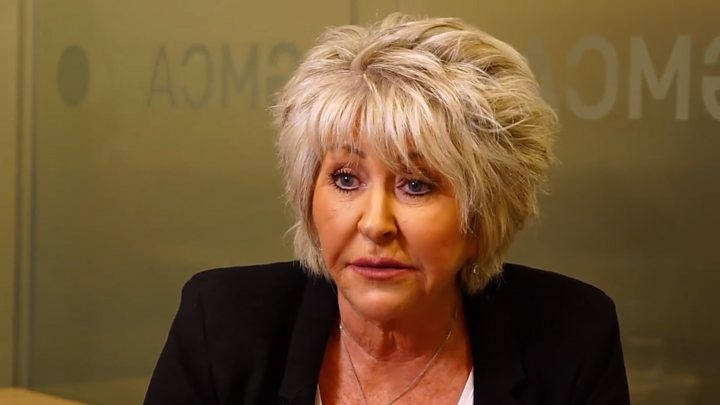
Former Det Insp Maggie Oliver, who resigned from her job over the way cases in Rochdale were handled by police, said senior officers in GMP had "betrayed the public" and tried to "bury the truth".
Ms Oliver said when she raised concerns at the time, she was met with "misogyny" and described as an "emotional woman" who was "too involved" with victims.
"Those children were just cast to the wind," she said.
"The question I would raise is: 'Why are these people not facing charges of misconduct in a public office? Where is the accountability?"
Apologising to "all those vulnerable children", Assistant Chief Constable Mabs Hussain said GMP "accepts that authorities fell short of doing all they could to protect and support the child victims of sexual exploitation identified".
"Children should be able to expect those responsible for their care will do all they can to keep them safe."

This is not ancient history. These failures happened in 2004 and 2005.
The new Children Act had just been passed. The authorities were promising lessons had been learned about always putting children first.
But reading today's review, it is clear many lessons had not been learned.
So what went wrong? As the Mayor of Greater Manchester Andy Burnham put it, there was an institutional mindset in which young, vulnerable girls were not seen as the victims but as the problem.
They were children in our care. Children some of those in authority labelled as prostitutes and promiscuous. Children who it was said had chosen to be exploited.
And the perpetrators were all from an ethnic minority which the authorities recognised had itself been a victim of prejudice and racism.
However demanding and difficult they may be, the welfare of children must always come first.
Mr Burnham said the report made "extremely difficult reading" but it was "only by fully facing up to past failures that we will be able to correct them".
He said Victoria's death "should have been a wake-up call" as it "exposed a network of paedophiles brazenly abusing young people in care".
"Each and every one of those abusers should have been brought to justice but, appallingly, most escaped and some were left to reoffend."
Ms Roney said MCC "cannot change the past [but] we have learned from it and will continue to do so to ensure that no stone is left unturned in tackling this abhorrent crime".
"We recognise that some of the social work practice and management oversight around 15 years ago fell far below the high standards we now expect [and] we are deeply sorry that not enough was done to protect our children at the time," she added.
What happens now?
In a statement, ACC Hussain said a major incident team had been established and was "reviewing all the information available", which had led to one man being arrested and another interviewed under caution in connection with Victoria Agoglia's death in September 2019.
The men have since been released while inquiries continue.
Speaking later, GMP Chief Constable Ian Hopkins said the new investigation into the crimes, named Operation Green Jacket, had identified 53 "potential victims", 48 of whom were in care between 2004 and 2005.
He added that the force had "viable lines of inquiry" in 38 cases.
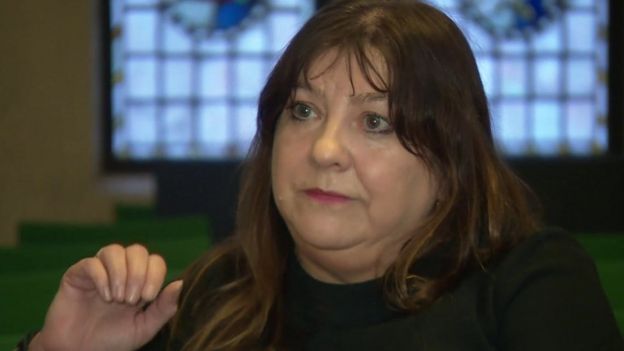
Mr Burnham, who said the system had been "guilty of appalling failings", added that going forward, "we will have a zero tolerance approach to child sexual exploitation of any kind".
He added that due to concerns about the original narrative verdict, he would also ask the attorney general to consider ordering a new inquest into Victoria Agoglia's death.
Ms Roney said MCC and GMP were now working together "much more closely and effectively to identify young people at risk of exploitation, put safeguarding measures in place to protect them and pursue perpetrators".
The report forms the first half of a larger investigation launched after the broadcast of the BBC documentary about child sex exploitation in Greater Manchester.
It said the second half had been delayed due to the need for a "data processing agreement", which had "recently been signed", allowing work to now progress.

No comments:
Post a Comment